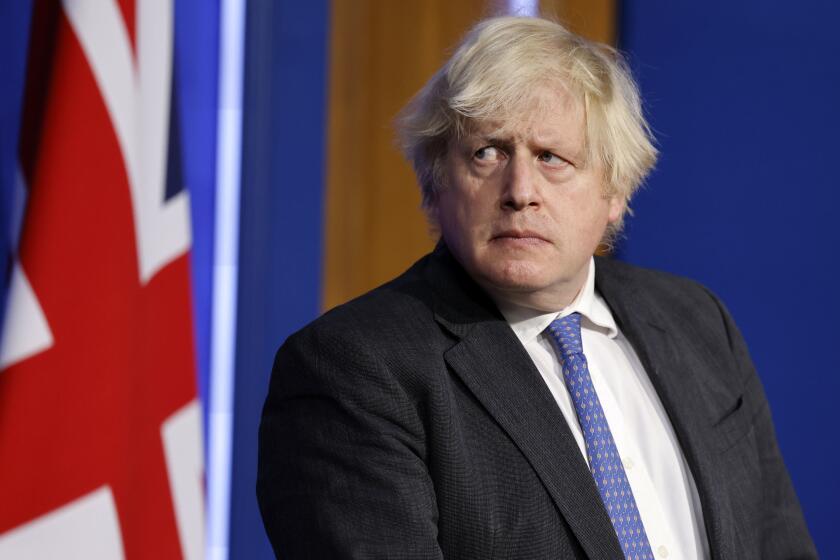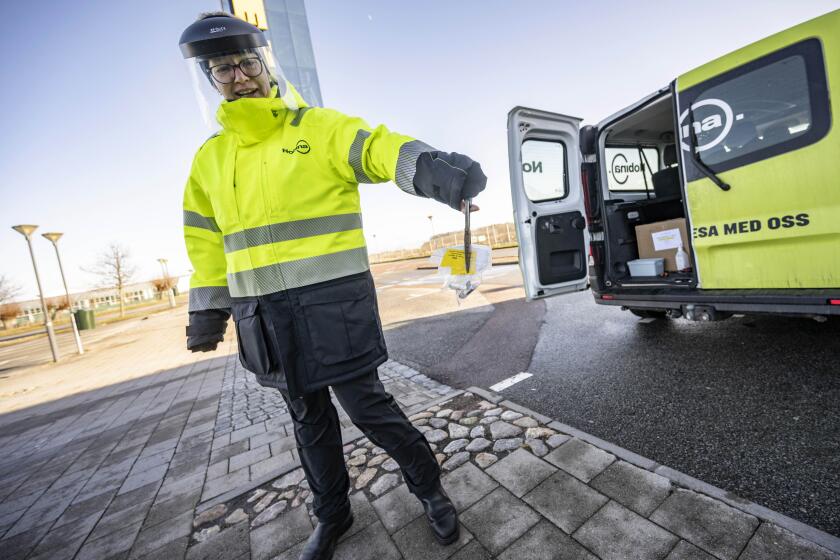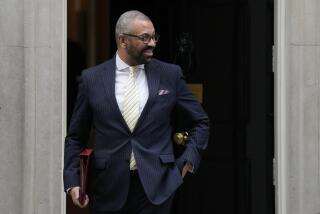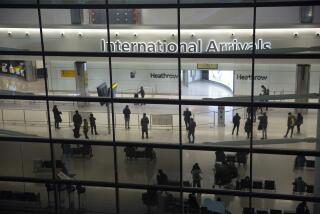Britain scraps all testing requirements for vaccinated travelers
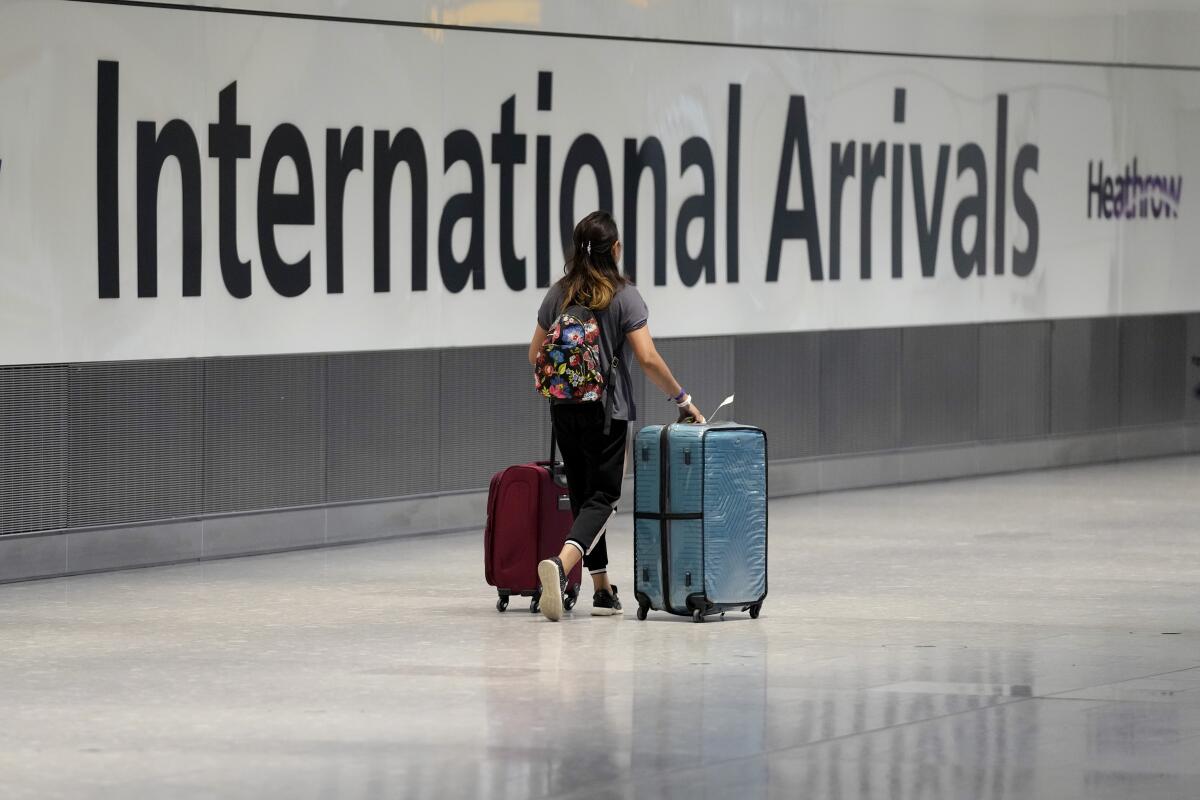
- Share via
LONDON — Vaccinated travelers can enter Britain without taking any coronavirus tests starting Friday, after the government scrapped one of the final restrictions imposed over the past two years in response to COVID-19.
British residents and visitors who have had at least two doses of an approved COVID-19 vaccine now need only to fill out a passenger locator form before traveling to the U.K. Unvaccinated people still have to take tests both before and after arriving but no longer need to self-isolate until they get a negative result.
Transport Secretary Grant Shapps said Britain “now has one of the most free-flowing borders in the world — sending a clear message that we are open for business.”
Airlines and other travel firms hailed the change as a lifeline after two years of severely constricted travel. Andrew Flintham, managing director of travel group Tui UK, said there was “a huge pent-up demand for international travel,” and people were rushing to book getaways for the February school break and April’s Easter holiday.
Gatwick, London’s second-busiest airport, said that it plans next month to reopen the second of its two terminals, shuttered since June 2020.
British Airways CEO Sean Doyle urged other countries to follow Britain’s “pragmatic approach.”
The British prime minister is famous for his ability to skate away from scandals large and small. But this one, over pandemic gatherings, might stick.
But some scientists worry that the government is moving too fast. Prime Minister Boris Johnson’s Conservative government lifted most domestic coronavirus restrictions last month. Face masks are no longer mandatory in most indoor spaces in England, vaccination passes for gaining entry to nightclubs and large-scale events were scrapped and official advice to work from home no longer applies. Other parts of the U.K. — Scotland, Wales and Northern Ireland — have also lifted most restrictions.
Johnson announced this week that he hopes to lift the final restriction, mandatory self-isolation for people who test positive, by the end of February as part of a plan for Britain to co-exist with COVID-19. Officials have said the government plans to switch from legal restrictions to advisory measures and treat the coronavirus more like the flu as it becomes endemic in the country.
Scientists expressed surprise at Johnson’s announcement. Tim Spector, an epidemiologist at Kings College London, said it was “more a political type of statement rather than a scientific one.”
“There is some rationale to this, and other countries are doing things similar, but it’s clearly a race for the government to say that ‘Britain is first, Britain is the first to come out of this, Britain has conquered Omicron, our booster program is world-beating, etc., etc.,’” he told Times Radio.
Experts say other countries could follow Sweden’s example as they begin to consider treating COVID-19 the way they do other endemic illnesses.
The reopening came as statistics showed the British economy grew by a bigger-than-expected 7.5% in 2021, despite an Omicron-driven slowdown at the end of the year. The re-imposition of some restrictions in response to the highly transmissible variant brought a contraction of 0.2% in December.
The Office for National Statistics said the growth followed a 9.4% contraction in 2020 as the pandemic shut down big chunks of the economy. The British economy is now back to the size it was in February 2020, just before the coronavirus swept the country.
Britain has Europe’s highest COVID-19 death toll after Russia, with more than 159,000 officially recorded deaths. The country has seen a drop in new infections and COVID-19 patients admitted to hospitals since the peak of the Omicron spike in early January.
Officials have credited the government’s booster-shot program with preventing the surge in Omicron cases from putting more stress on hospitals. In Britain, 84.6% of people 12 and up have had two doses of a vaccine, and almost two-thirds have had a booster shot.
More to Read
Sign up for Essential California
The most important California stories and recommendations in your inbox every morning.
You may occasionally receive promotional content from the Los Angeles Times.
